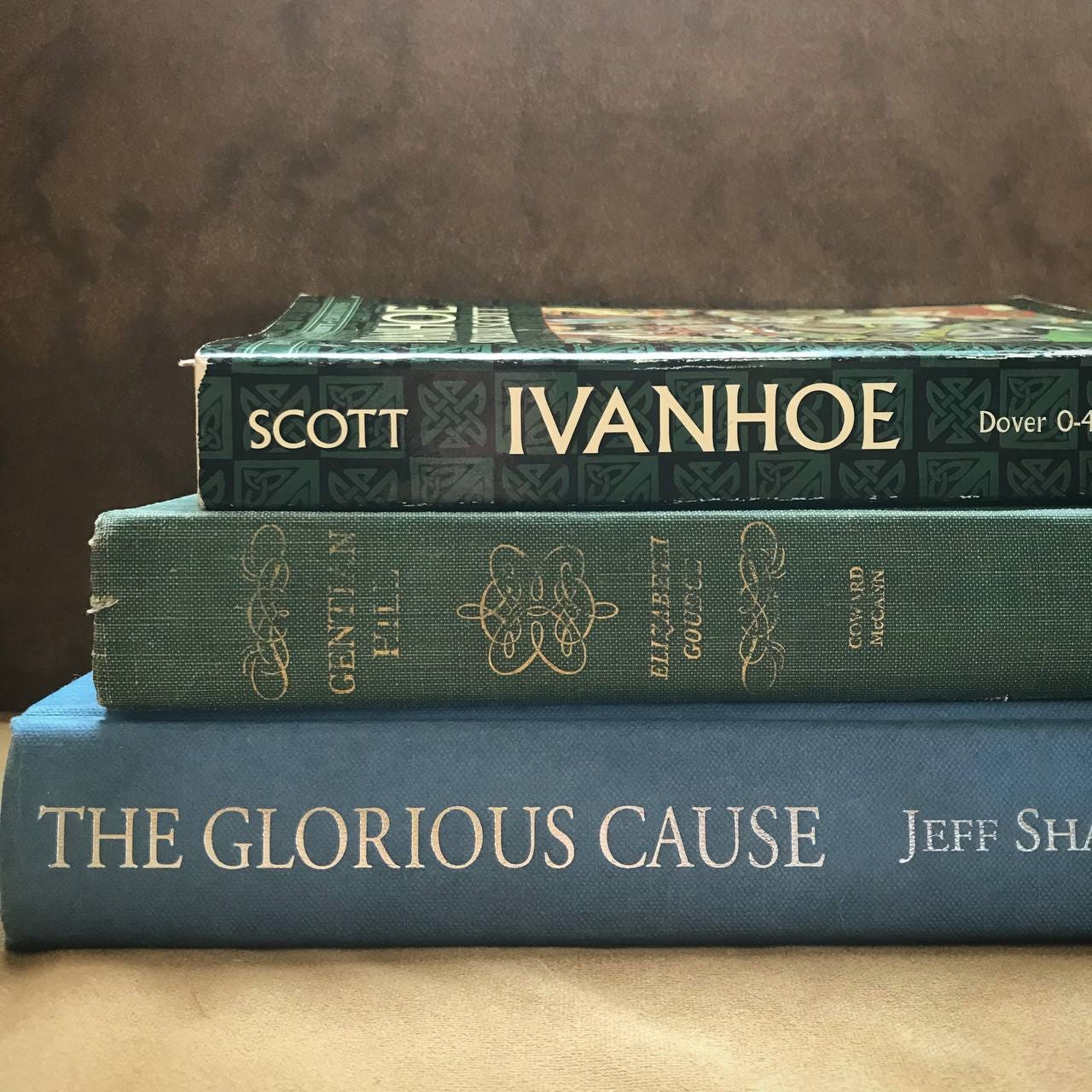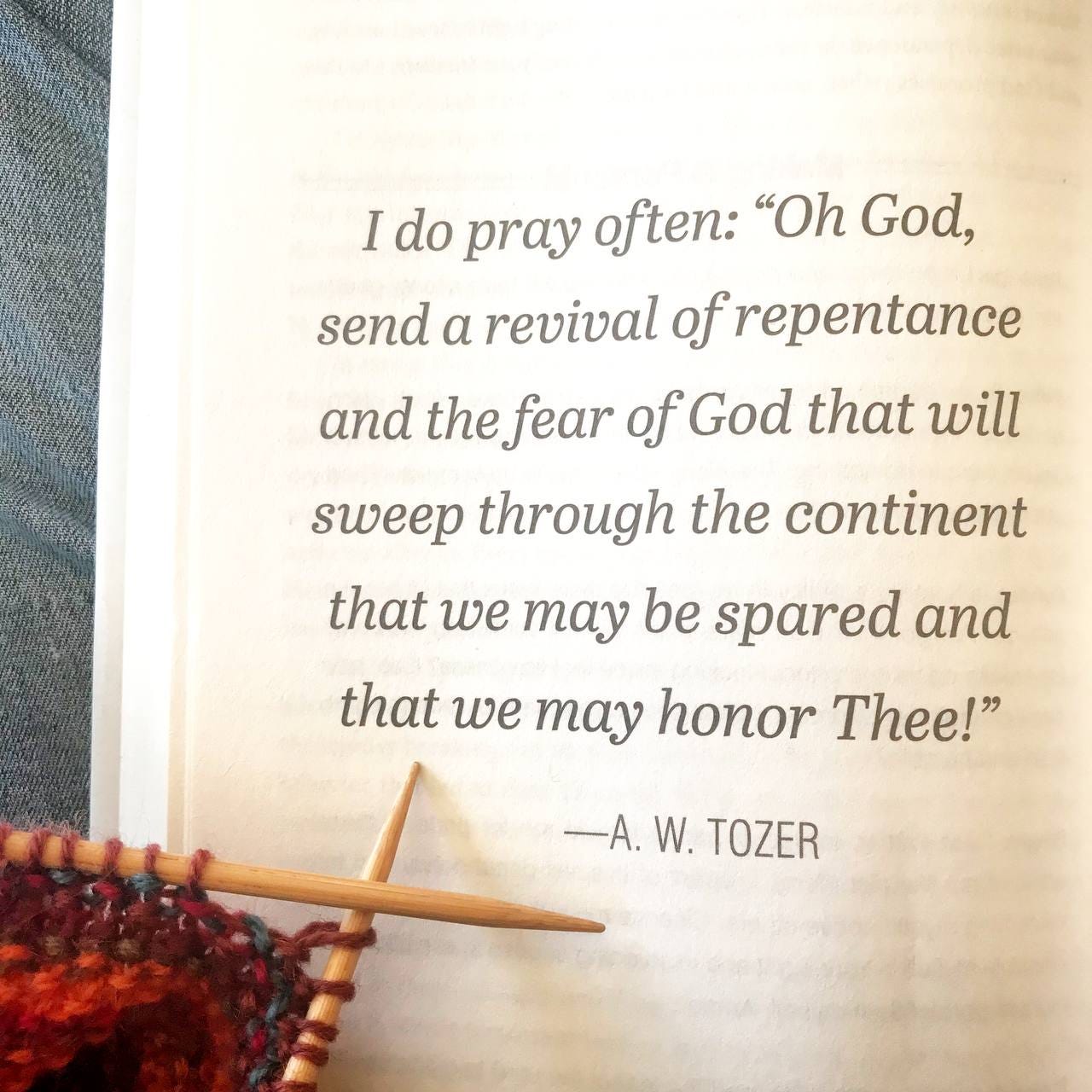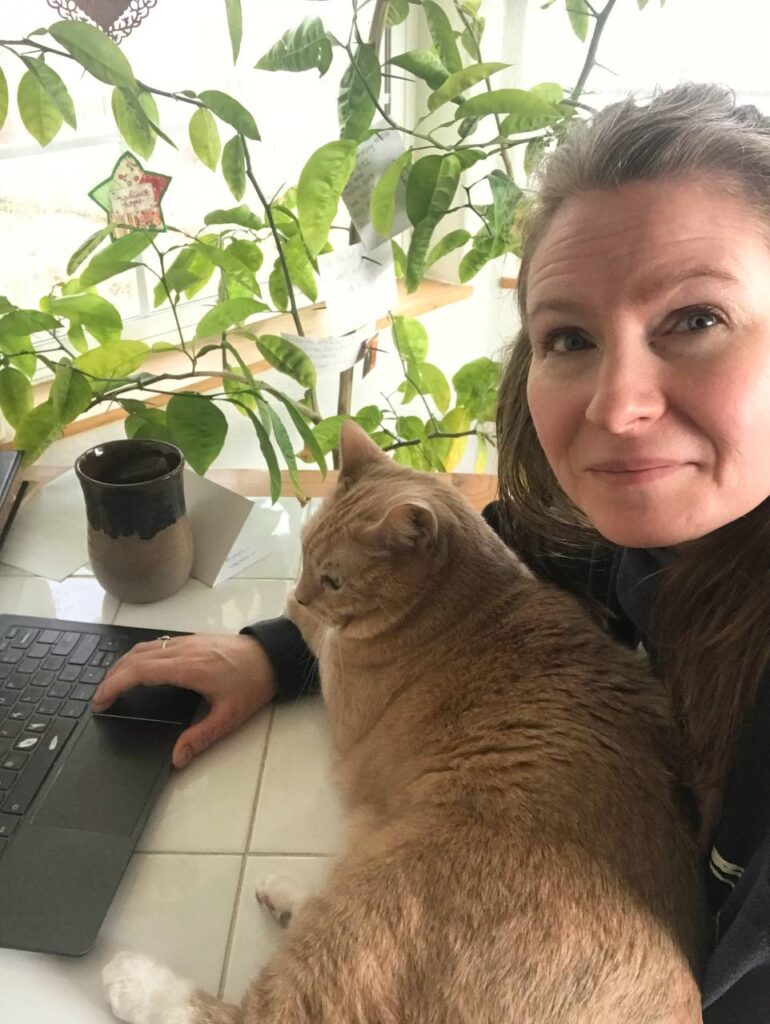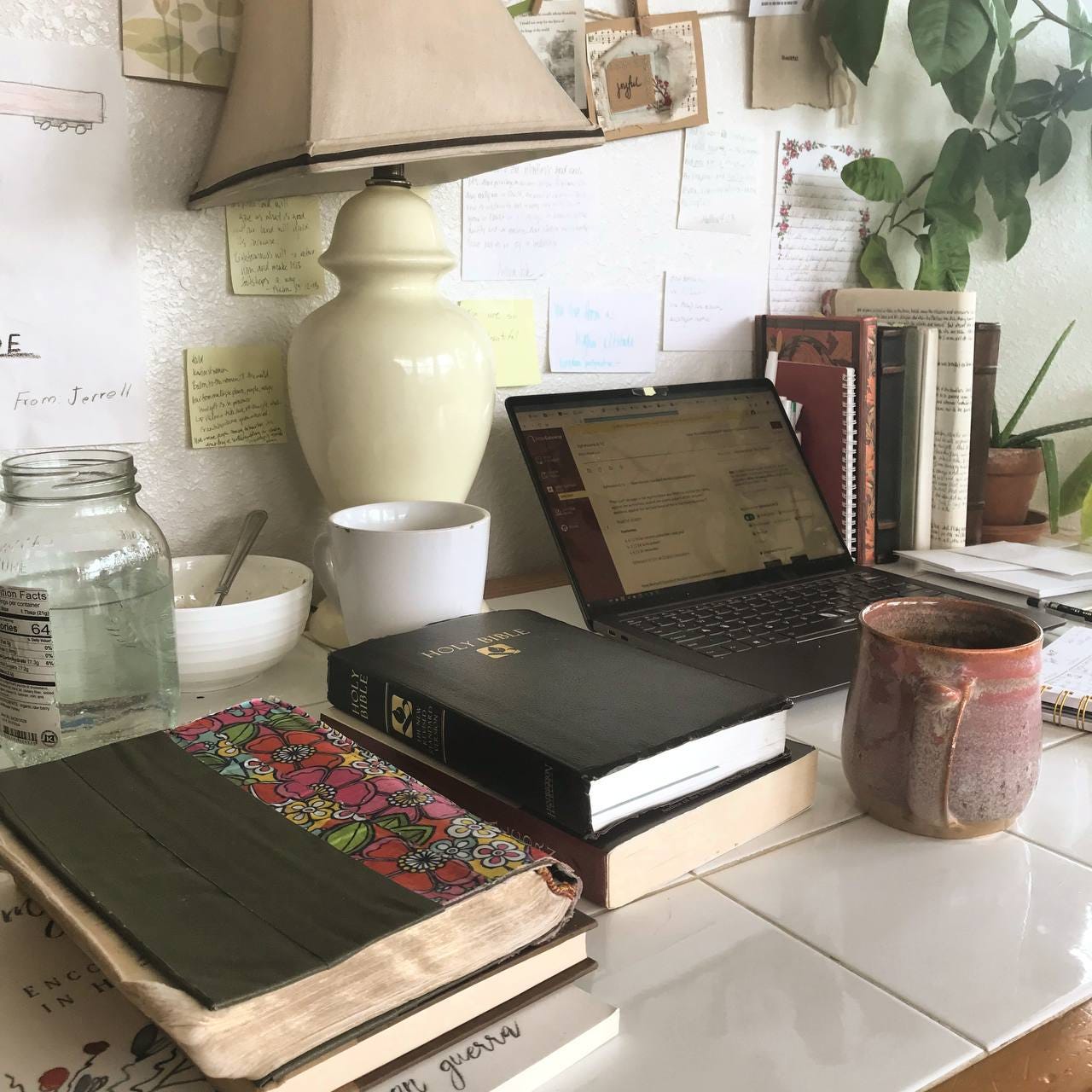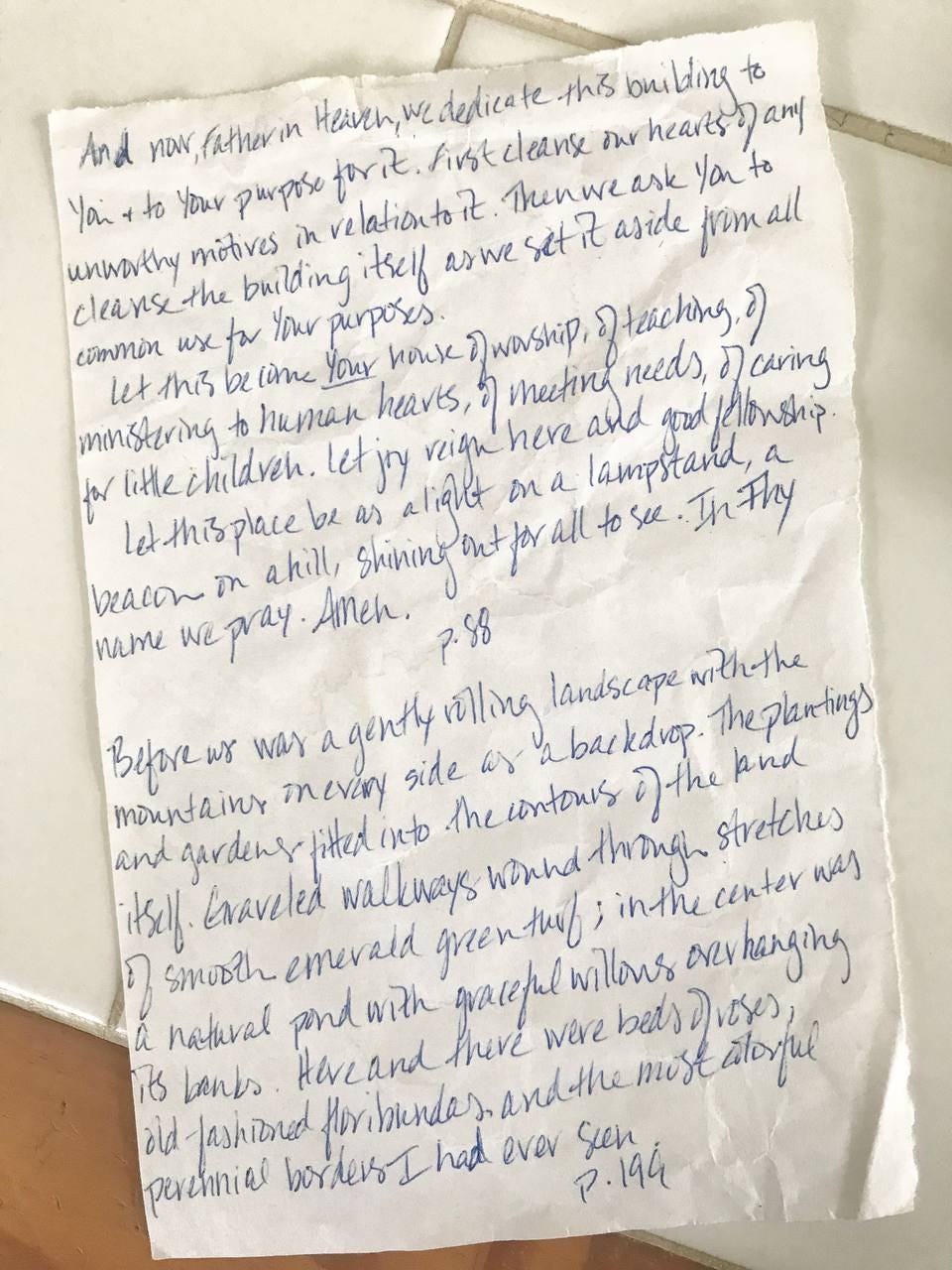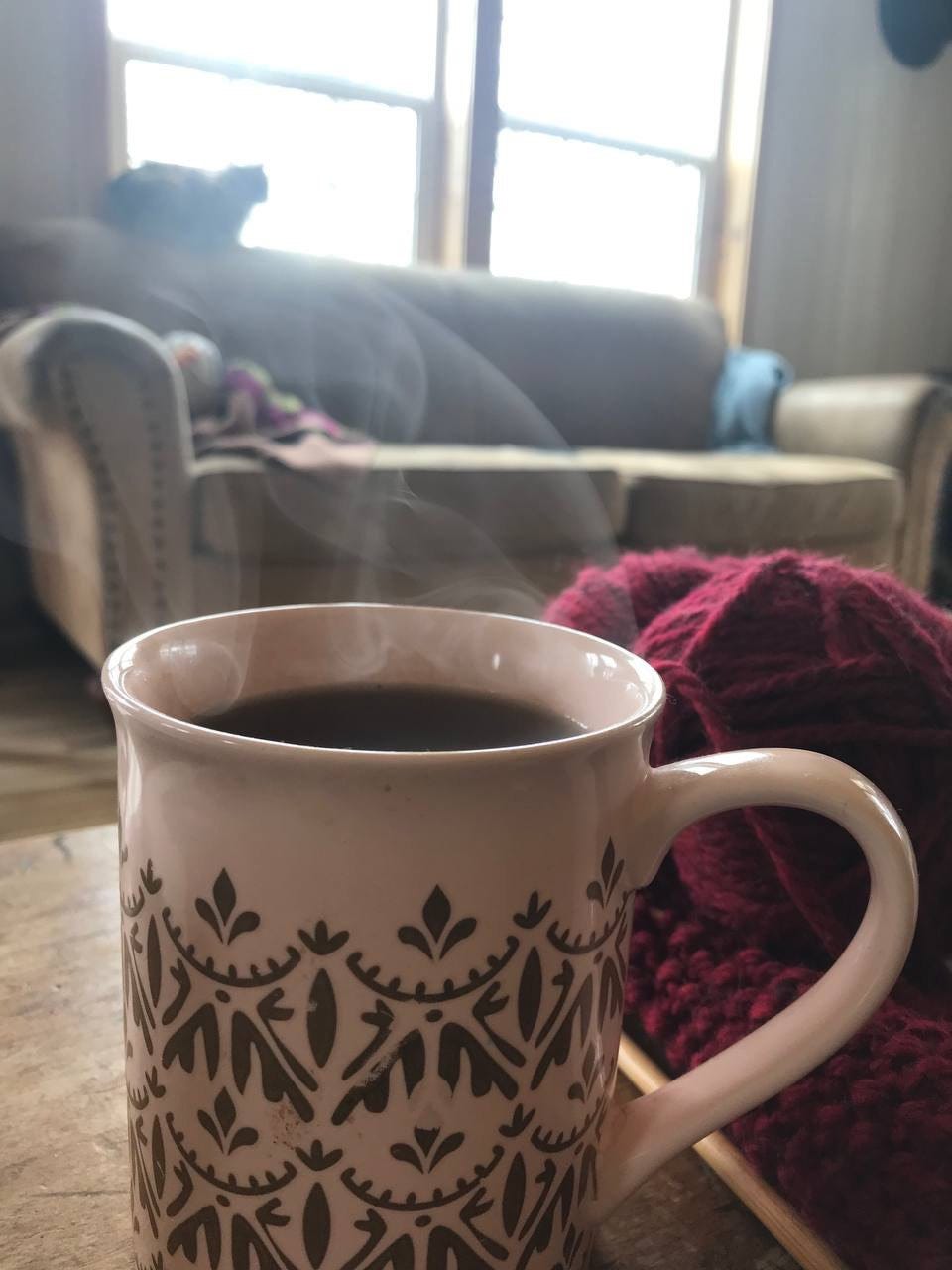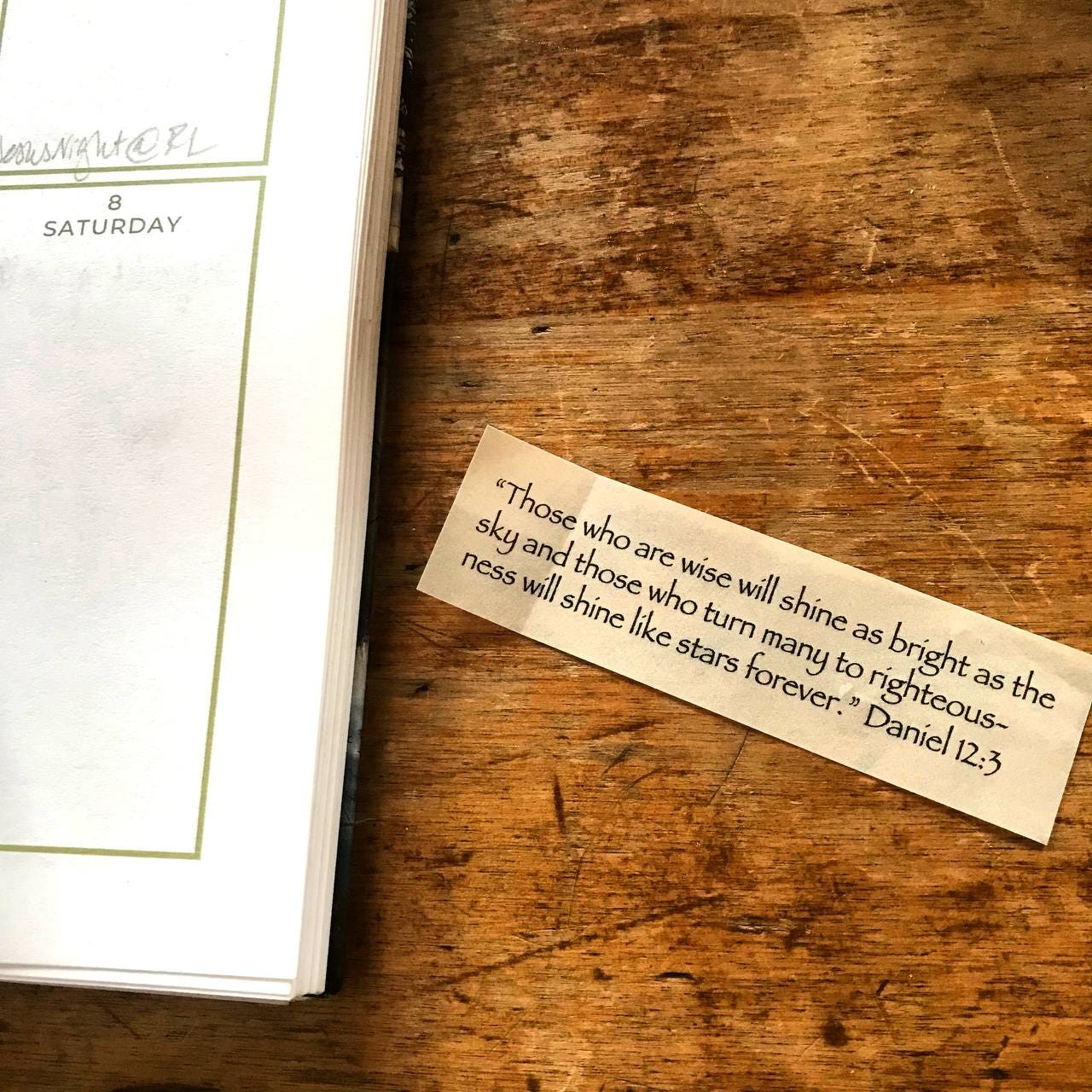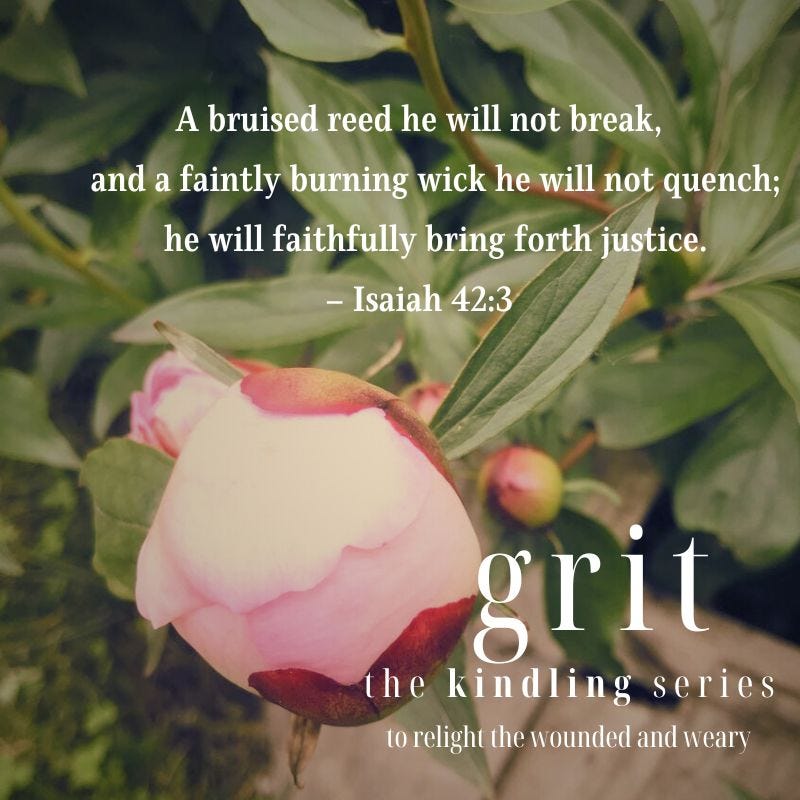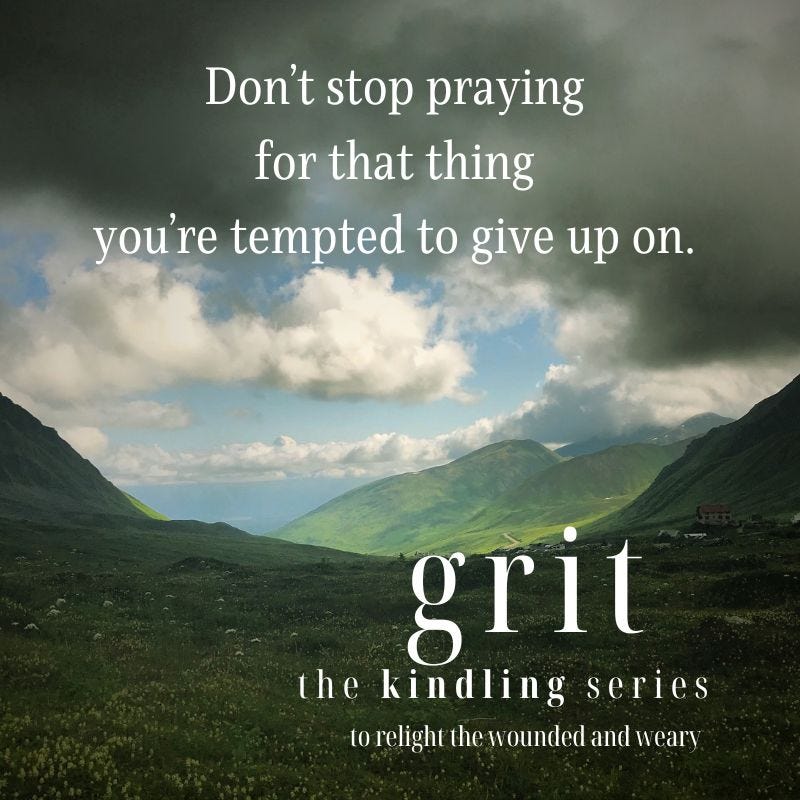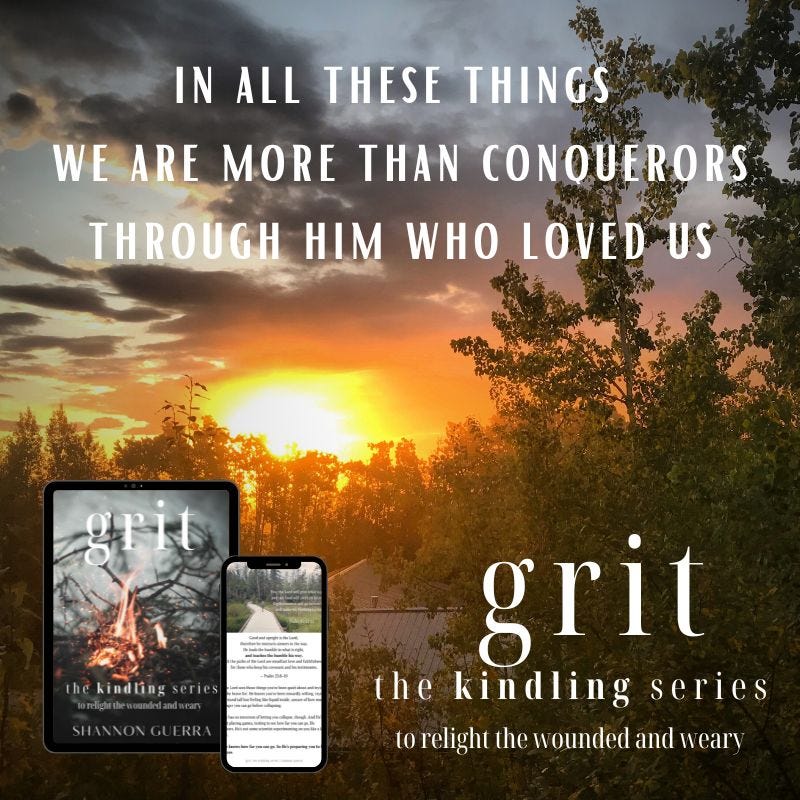My old crossword puzzle book is a magnificent doorstopper with over 200 puzzles in it. I’ve taken it up again, and whether they want to or not, my family inevitably gets roped into helping me with it.
“What’s fish-eating bird that starts with E, only four letters?”
“Kingfisher!” our youngest hollers.
“Four letters, starts with E,” I repeat.
“Eagle!” says a kid who shall remain nameless.
“Four letters…”
“Emu!”
“Four! Letters!”
“Oh…how do you spell emu?”
Headdesk, headdesk. Are they even listening?
Sort of. They are doing what I do, what you do, what we all do: Taking the little bit we know and running with it, rather than attending to the full picture.

I do this when I think I have the right answer to a crossword clue based on only one letter. Dateless, four letters, starts with S? SOLO, easy. It works perfectly with the S but not so much for the other letters, and after a while I peek in the back (don’t tell) and realize the correct answer is supposed to be STAG.
Duh, of course. Erase, erase, erase, brush the rubbings away, write the correct answer, try again.
Next clue! Crescent-shaped – six letters, the second one is a U.
If you, like me, thought it should be CURVED…you, like me, would also be wrong. Sigh.
None of the other letters worked with their corresponding clues, so I stole another peek in the back (that answers section really is quite handy), and found the correct answer is LUNATE. (What?! So fancy.)
I think the lesson here (other than that I need to expand my vocabulary) is that when I am faced with a problem, my first response isn’t necessarily the right one. Sometimes it is good – sometimes I remember to pray, to trust, to worship. But other times, my first response is to rifle through the cabinet and eat a handful of chocolate chips.
The real answer, of course, is about abiding and proximity. I know that one. Knowing and doing aren’t always the same thing, though, which is why we’re also talking a lot lately about going back, undoing, and redoing – or maybe what we really mean is repentance.
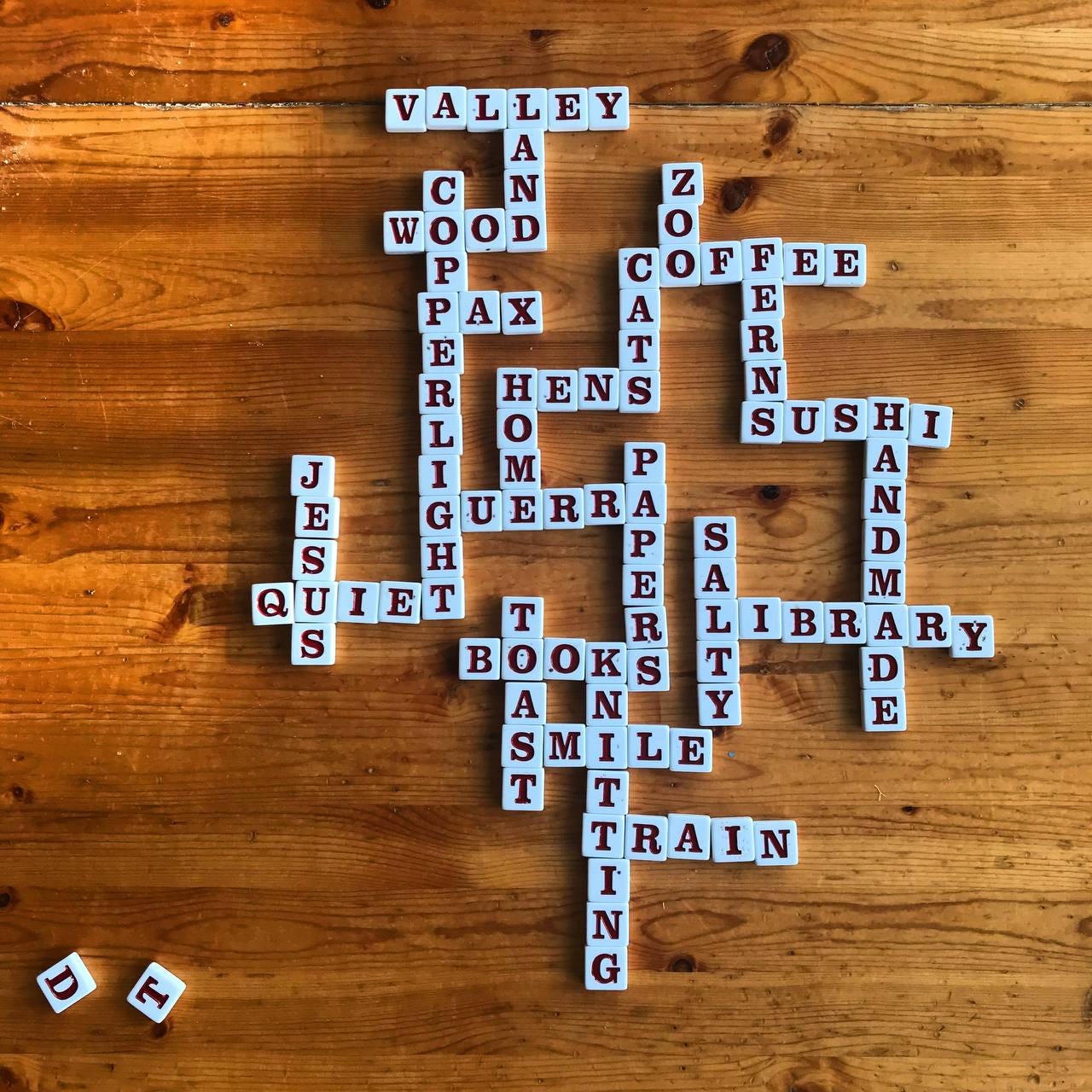
Let’s go back a little farther than that, though. Repentance comes later, after something has gone amiss.
We usually talk about sins in a big, broad, generic way, but the Bible often specifies between ways of, shall we say, blowing it. Like so, real brief:
- Sins: These are basic mistakes. Whoops, I tried but I messed up, I’m sorry. You probably know that it literally means “miss the mark,” which means we aimed and intended to do the right thing, but got it wrong. SOLO looked like the right answer, but it was actually STAG. Drat.
- Iniquities: This goes back to the root word avon, meaning “distortion or bent.” It’s more like a learned misbehavior, often (but not always) generational. They can be defense mechanisms, wrong beliefs we grew up with, or bad habits and coping skills (see also chocolate chips). It is a perversion or distortion of what is otherwise right. CURVED seemed like the obvious answer, and I’ve never even used the word LUNATE in a sentence until now.
- Transgressions: This is outright wrongdoing and rebellion – and ironically, it’s what we usually mean when we use the word “sin.” This is when we know the right thing but refuse to do it, or we know something is wrong but we do it anyway. The intention itself is willful disobedience. Who cares what the clues and corresponding letters are? I’m going to write GFYXRT in the boxes because I want to, so there.
Wasn’t that fun? So now we know there are several ways to get the wrong answer in life…and that explains a lot.
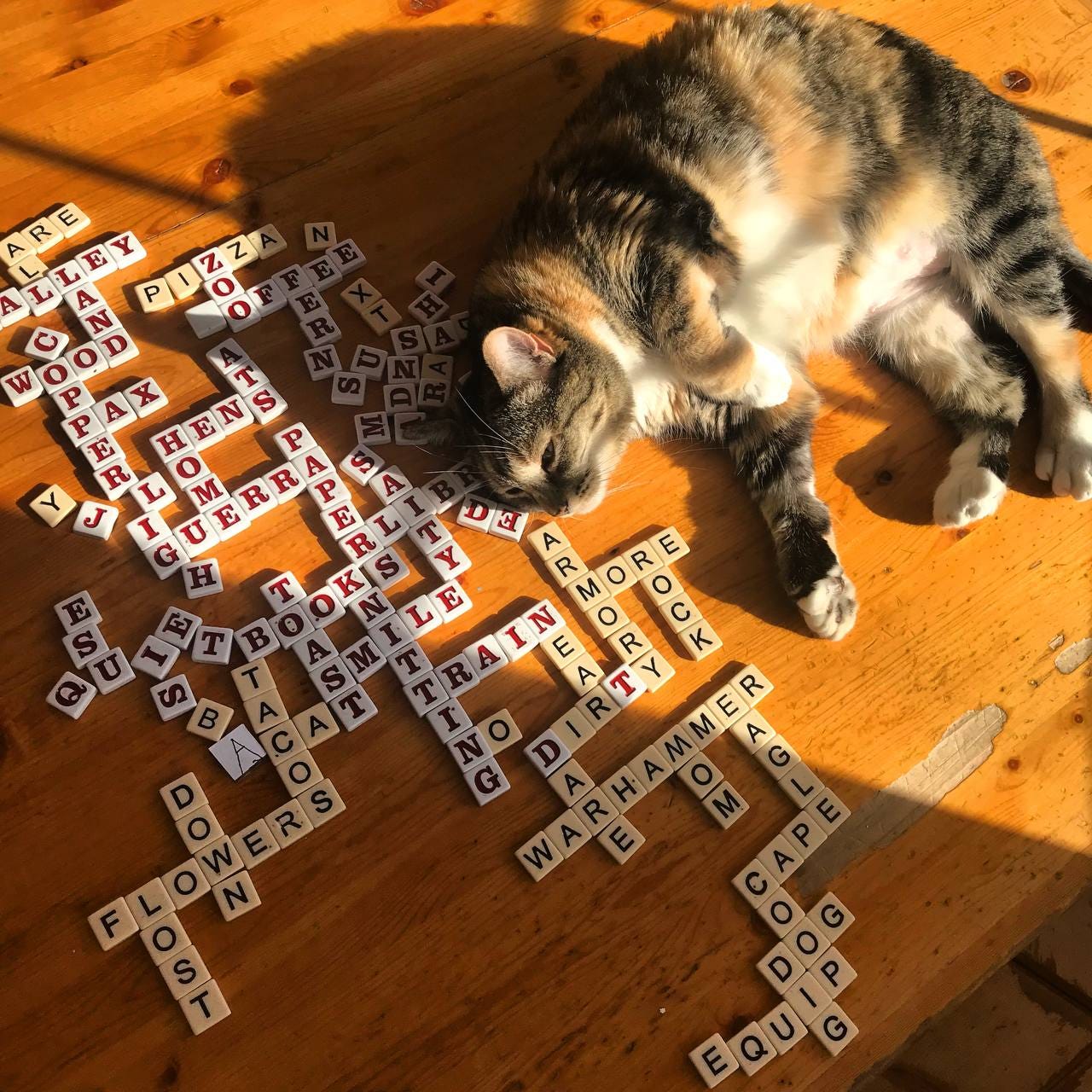
But here’s some good news:
He does not deal with us according to our sins
nor repay us according to our iniquities.For as the heavens are high above the earth,
so great is his steadfast love toward those who fear him;
as far as the east is from the west,
so far he removes our transgressions from us.– Psalm 103:10
You’ll notice, of course, there’s a stipulation here: This is about those who fear Him. Not just anyone. It’s for those who look to Him in obedience and abiding, for those who trust and surrender, for those who repent and go back to undo and redo. Without abiding and surrender, we miss who God really is and we fall for Churchianity that is generally either harsher or fluffier than a genuine relationship with Jesus.
Because He deals with us differently depending on whether or not we find our answers in Him:
I dealt with them according to their uncleanness and their transgressions and hid my face from them.
– Ezekiel 39:24
But then there’s this interesting contrast:
Once God has spoken;
twice have I heard this:
that power belongs to God,
and steadfast love belongs to you, O Lord.
For you repay to all
according to their work.– Psalm 62:11-12
Okay, to sum up: He removes the sins, iniquities, and transgressions of those who fear Him — and this requires our repentance and surrender. But He deals with (unrepentant) transgressors according to what they’ve done. And He repays all according to their work.
Huh. How do we reconcile all that together?
To the Hebrew!
Maaseh: Work, deed, act, labor, product, accomplishment. Meaning: an action, a transaction, activity, a product, property.
Did you notice the word “transaction?” I think this is our clue. Something is given in exchange for something else. We repent, we get forgiveness…and so much more.
Could it be that at least part of the work He pays us according to is repentance? Because this is the turning that keeps our eyes on Him. This is the surrender that admits we don’t know what we’re doing and we need His answers. This is the humility that confesses we get it wrong on our own.
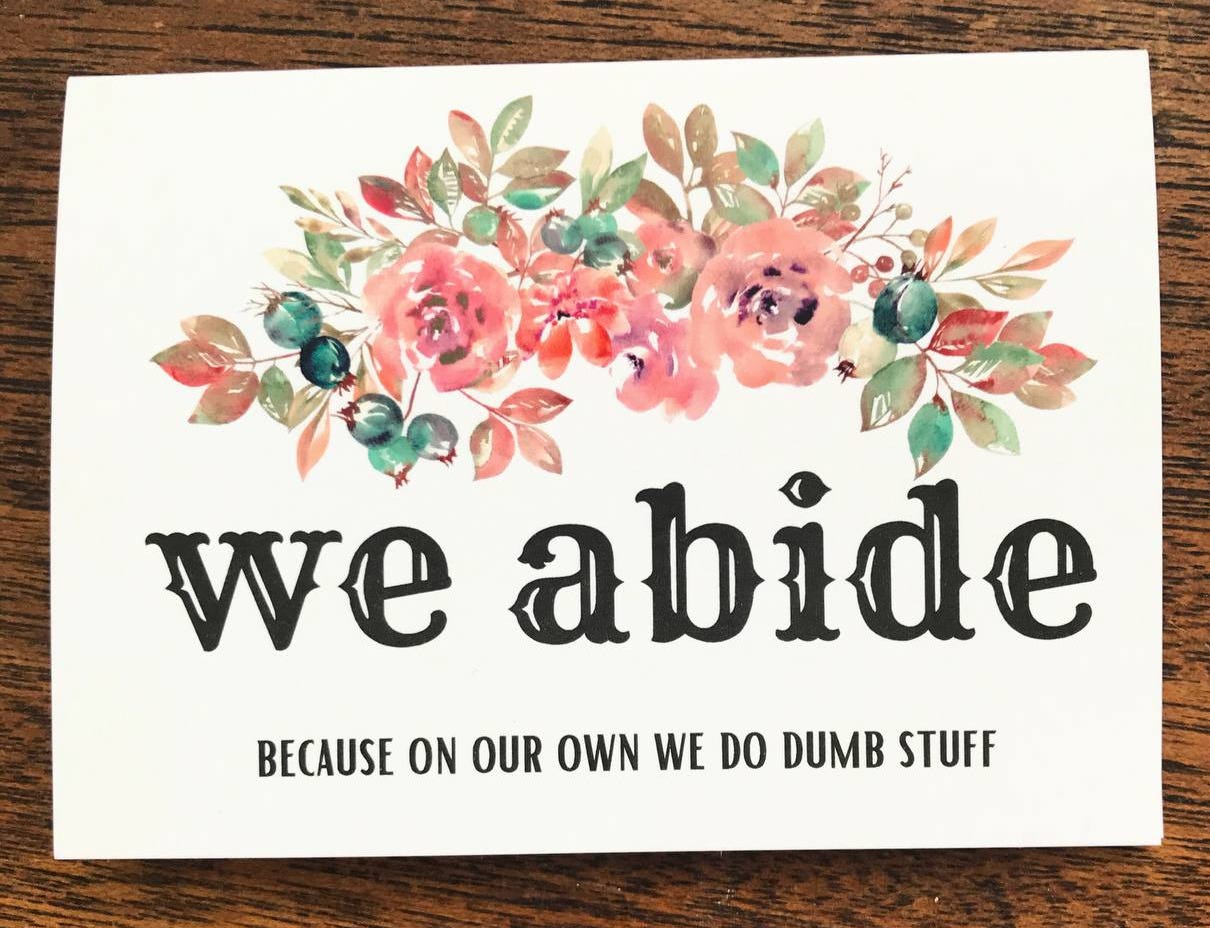
Repentance – undoing, and redoing – is hard work. It requires attending to things we’d rather not deal with.
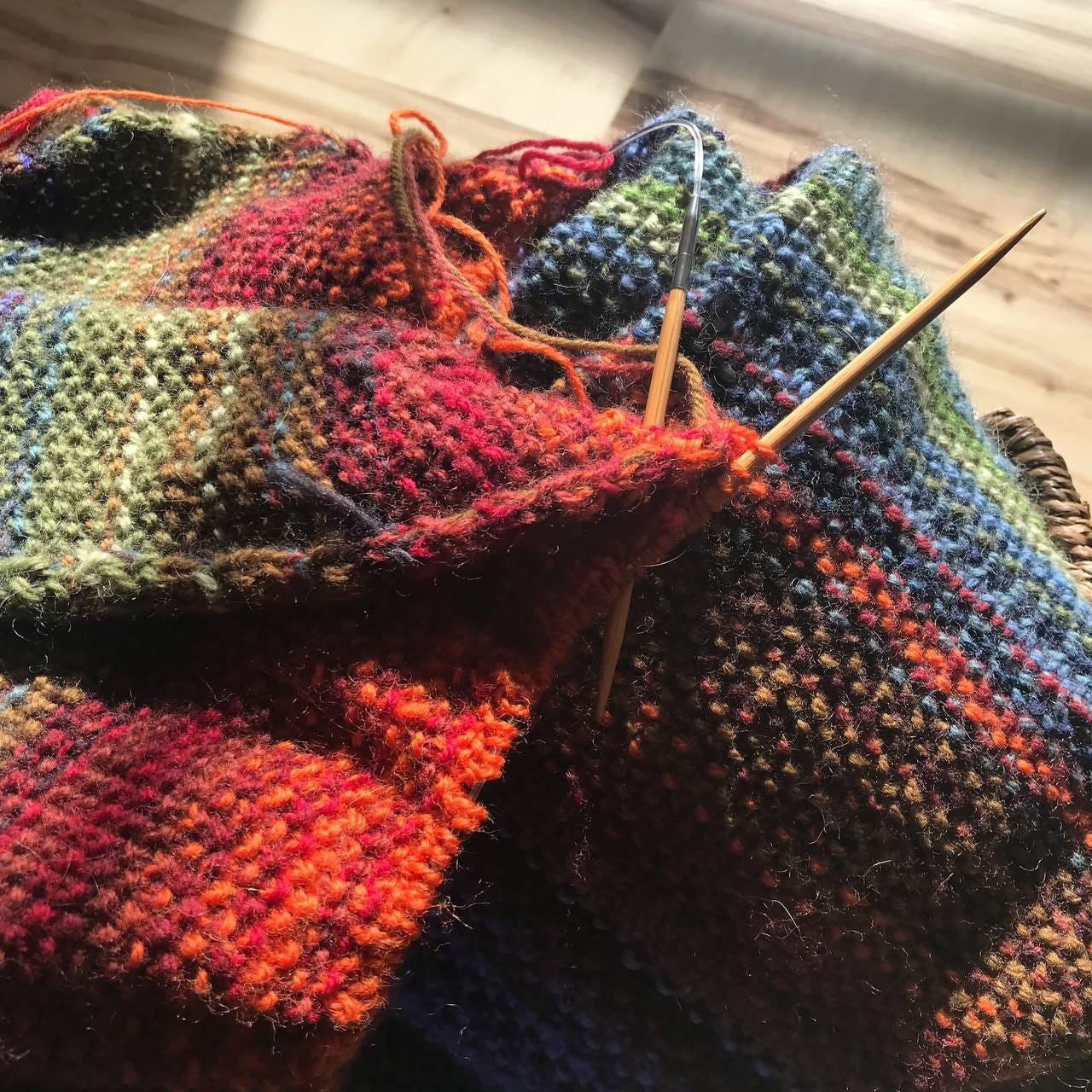
When I started this afghan a few years ago, I didn’t know what I was doing. There was no pattern in mind, just a basic seed stitch and stripes to keep my hands busy. But as I went, I loved what it became more and more. And as I loved it more, I liked the beginning less. It didn’t fit the rest of the pattern, I didn’t like the sequence of colors, I hated looking at it. In iniquity this blanket was conceived…and when we know better, we do better.
But do you have any idea how much work it is to un-knit 250 stitches to create a new edge? So much work. Tedious, annoying, repetitive, and you can’t read a book while doing it because your eyes have to be on it the whole time lest you drop a stitch and revive the phrase “swears like a knitter.”
It had to be done, though.
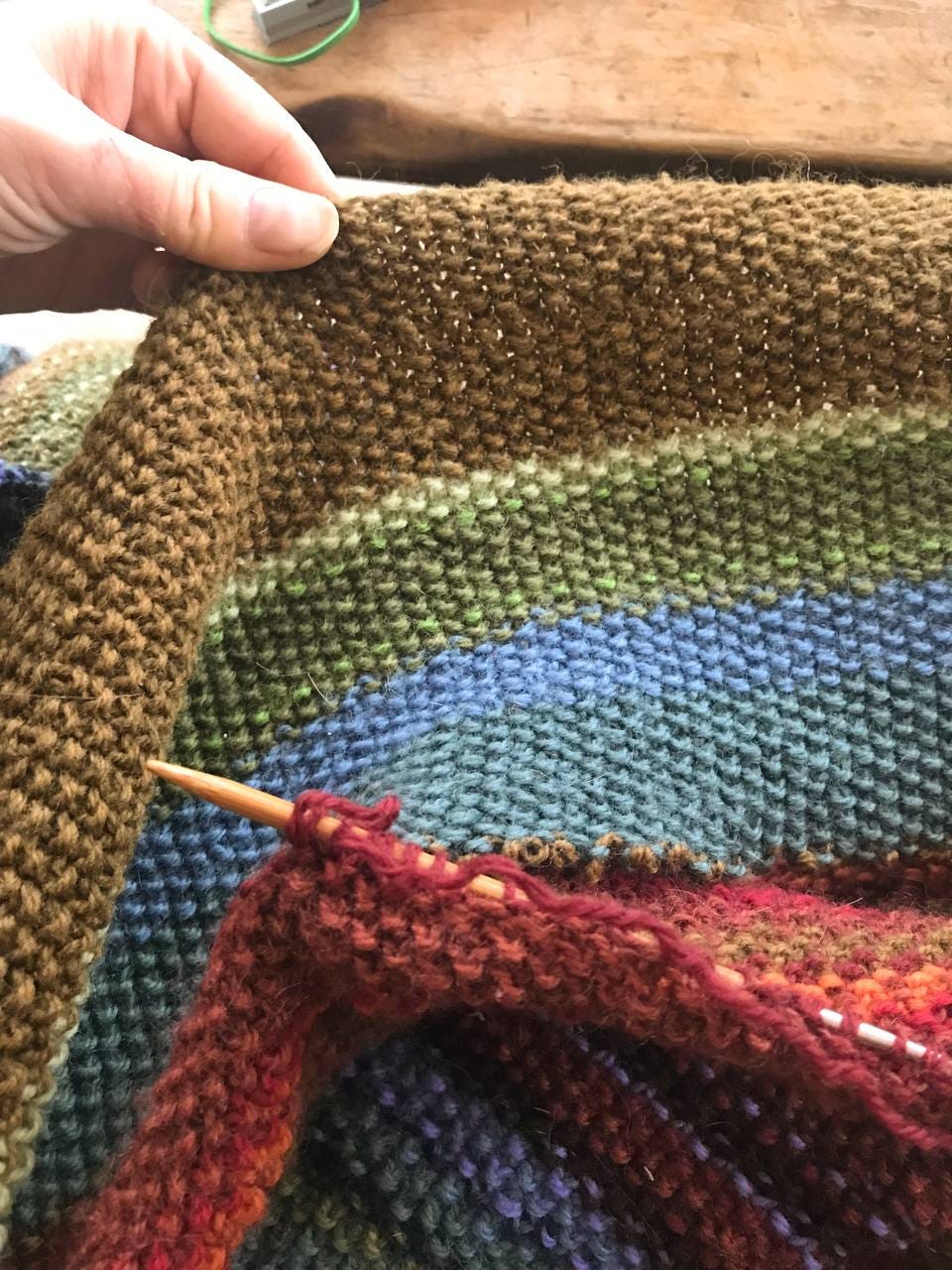
After deciding which row should be the new edge and where the old stuff should be removed, I wove another cable needle into the new “first” row, and un-knit all those stitches, pulling the old yarn through each individual stitch in increasingly long lengths, casting it across the couch over and over and over, and pulling it through the old loops and stitches all over again. You can’t just rip it out knitting; you have undo it a stitch at a time or else the loose (“live”) stitches will run like a gigantic hole in pantyhose.

It takes about four times as long as the original process, and yes, it is as miserable as it seems. It took me two weeks to undo it all.
But now the new edge matches the rest of the pattern…and I’m happy with it, now that I know what I’m doing. I don’t mind looking at it anymore – in fact, I love it.
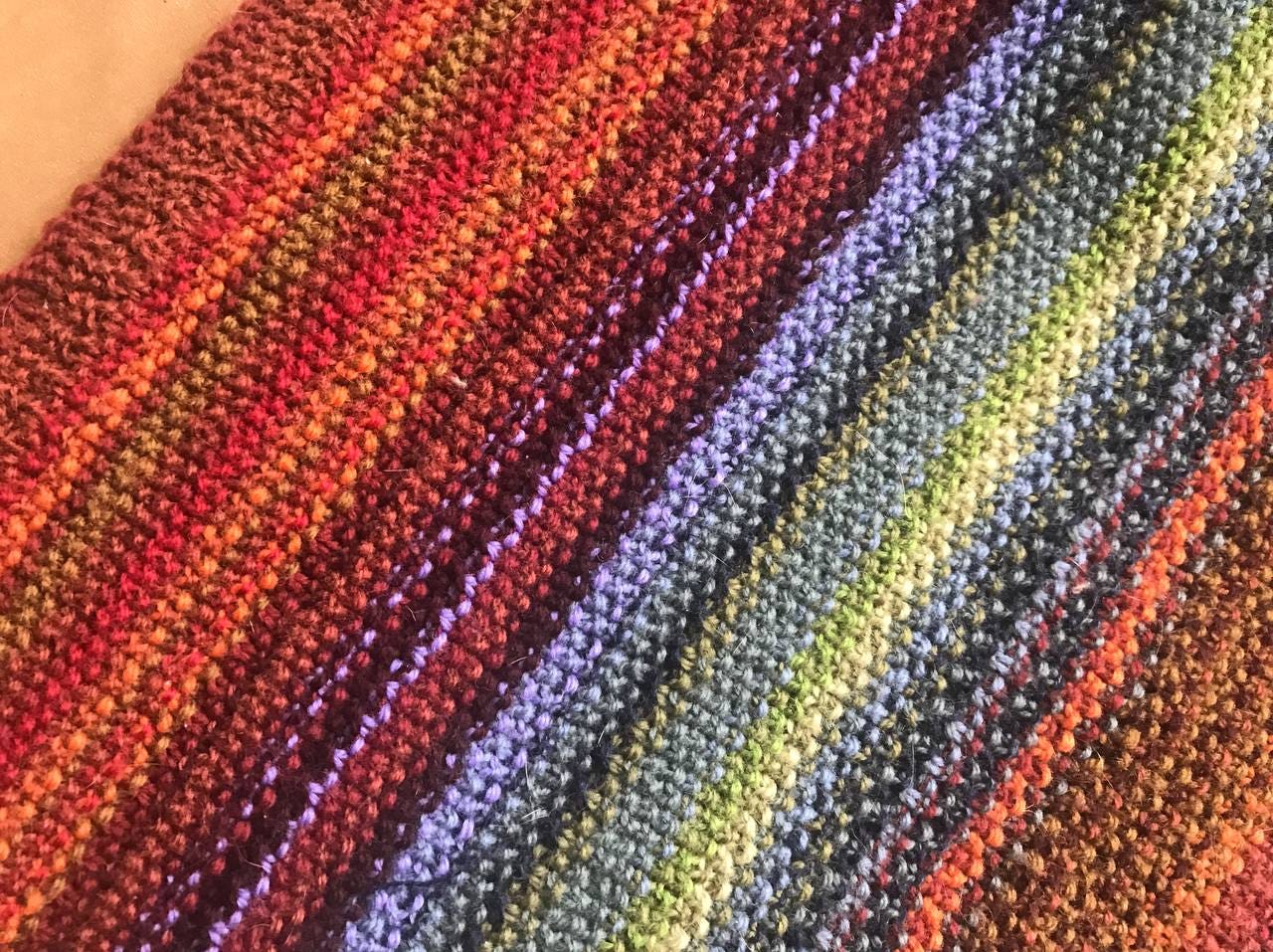
If we are avoiding looking at something, it might mean we need to attend to it all the more and do some repenting. That area we’d rather not deal with is probably the one that most needs undoing and redoing…or at the very least, a little more maintenance.
Untangling, realigning, reordering. Life is messy and repentance is a lifestyle, not a checked off event.
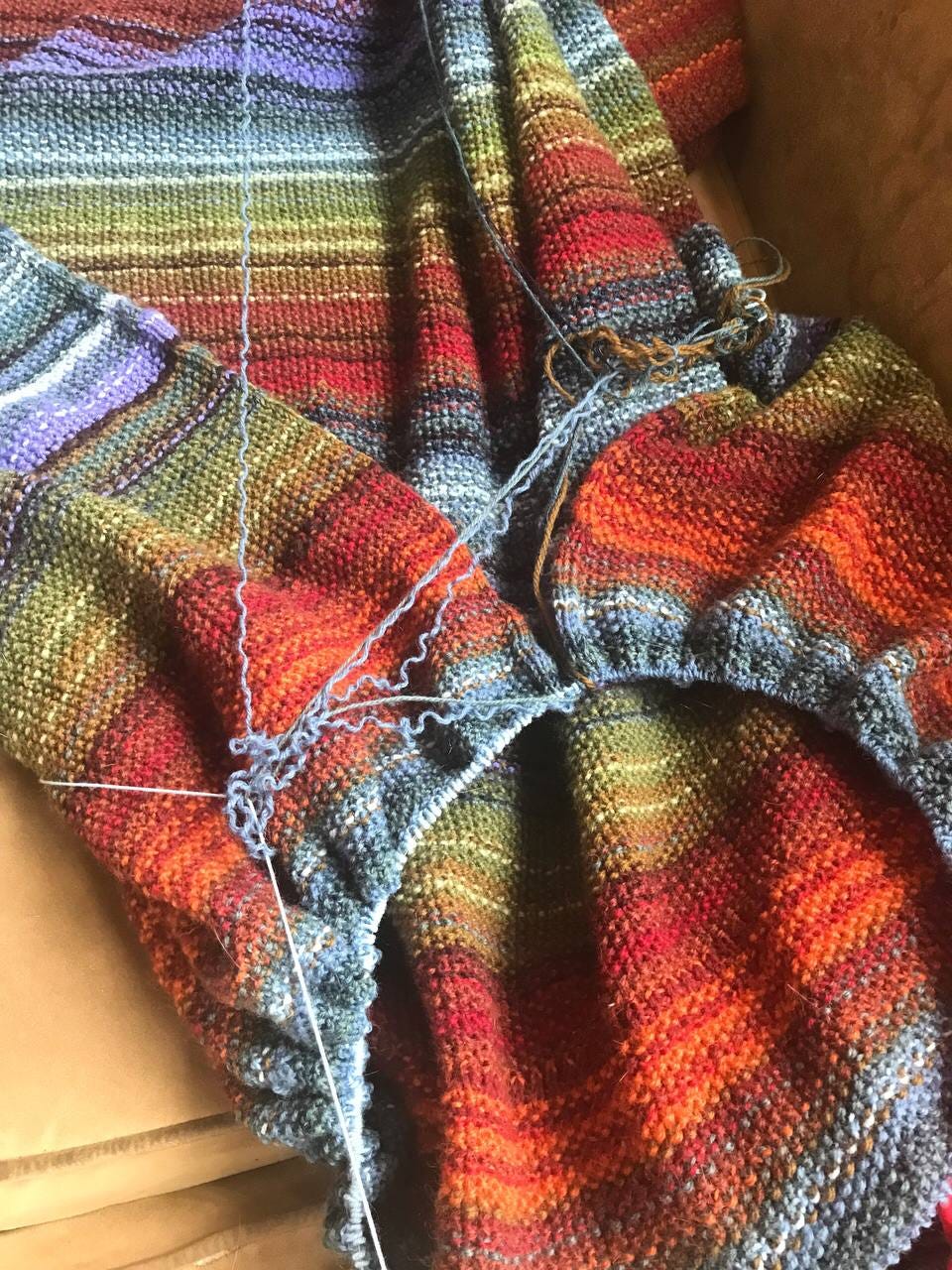
But the redoing comes with great rewards, because since He repays us according to our repentance, we can ask for bold things:
My mouth is filled with your praise
and with your glory all day long.
Do not cast me off in the time of old age;
do not forsake me when my strength is spent.O God, from my youth you have taught me,
and I still proclaim your wondrous deeds.
So even to old age and gray hairs,
O God, do not forsake me,
until I proclaim your might
to all the generations to come.– Psalm 71:8-9, 17-18
And here we start to see some of the reward of stewarding our days, attending rightly, learning better and doing better. We realize what we missed, and we pick up on what we were oblivious to before.
We draw better boundaries, we go from glory to glory. Whatever happened in the past, we’ve moved forward from. And when we’ve done that, we have stewarded our days with glory, filling them with praise.
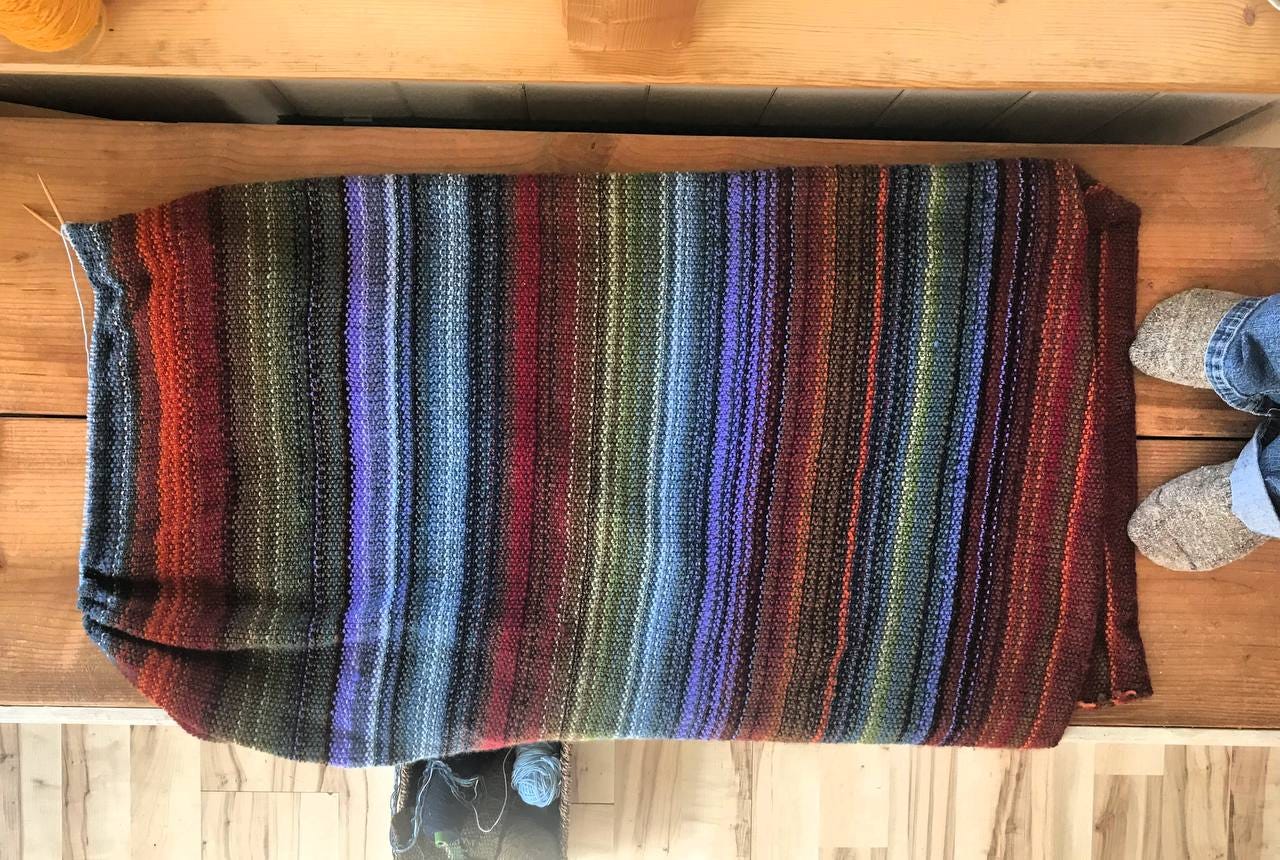
P.S. That fish eating bird, four letters, starts with an E? ERNE. Who knew? (Not me.)


